Ext2 Installable File System

Ext2 Installable File System: Default & Most Commonly Used Linux FS
Ext2 is a file system for Linux operating systems that aims to provide high performance and reliability. It is the default and most commonly used Linux file system.
What is Ext2 Installable File System?
The Ext2 file system (second extended file system) was originally designed for Linux operating systems in 1993. It provides many advanced features compared to its predecessors like ext and ext1 while still emphasizing high performance, reliability and backwards compatibility.
Some key features of Ext2 include:
- Supports file sizes up to 2 terabytes and file system sizes up to 32 terabytes
- Fast filesystem checks via journaling
- Efficient storage allocation and access using B+ trees and HTrees
- Reliable disk storage by detecting and recovering from errors
- Allows defragmentation while mounted for better organization
- Backwards compatibility with ext file system
Due to its maturity, performance and stability, Ext2 continues to be the most widely adopted Linux filesystem today. It serves as a robust general-purpose filesystem that meets the needs of individual users and small organizations.
Limitations of Ext2 include poorer disk performance on very large filesystems and lack of built-in encryption. Some modern Linux distributions use Ext3 and Ext4 by default for added features, but Ext2 remains popular for removable media, older systems or cases that don't require journaling.
Ext2 Installable File System Features
Features
- Journaling file system
- Extents for more efficient storage allocation
- Fast fsck utility for quick crash recovery
- Online defragmentation
- Large file support (up to 16 TB)
- Access control lists for fine-grained permissions
Pricing
- Open Source
Pros
Cons
Official Links
Reviews & Ratings
Login to ReviewNo reviews yet
Be the first to share your experience with Ext2 Installable File System!
Login to ReviewThe Best Ext2 Installable File System Alternatives
Top Os & Utilities and File Systems and other similar apps like Ext2 Installable File System
Here are some alternatives to Ext2 Installable File System:
Suggest an alternative ❐Linux File Systems for Windows
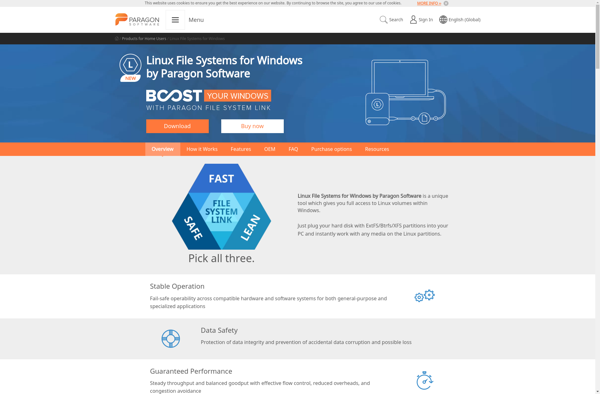
Ext2Fsd
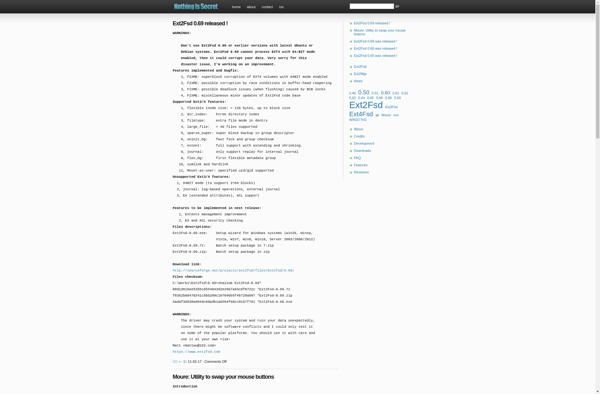
Paragon ExtFS

DiskInternals Linux Reader

XtreemFS
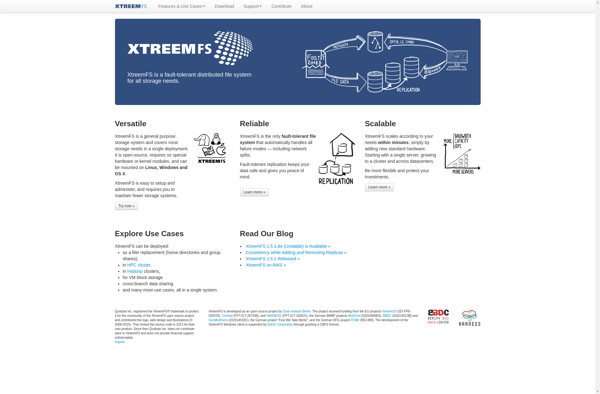
BeeGFS

Ext2Read (Ext2Explore)
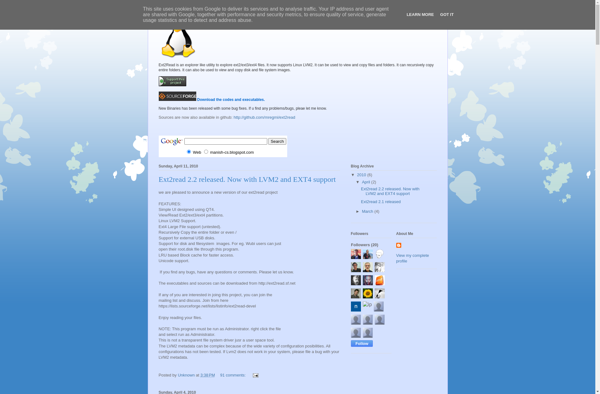
HFSExplorer
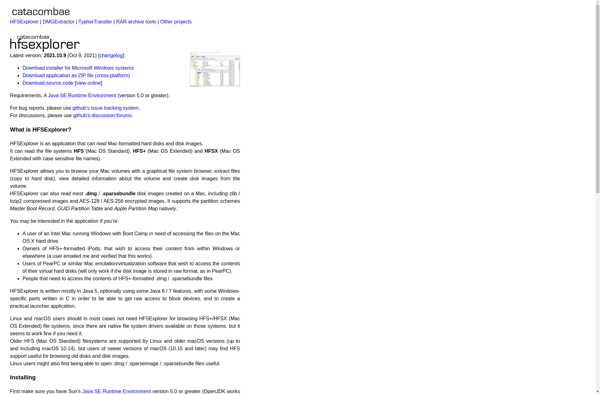
Lustre

FSproxy

Explore2fs
